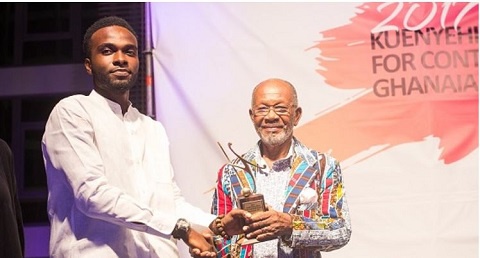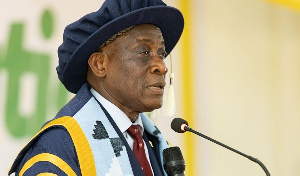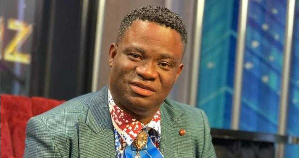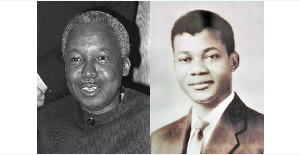THE HAGUE - It could be years before it hears a case, and it faces major opposition from the United States, but the world's first permanent war-crimes court was inaugurated Tuesday with the swearing in of 18 judges, including a well-respected Canadian diplomat who was also elected the court's president.
With Queen Beatrix of the Netherlands and UN Secretary General Kofi Annan looking on, the judges promised one by one to administer justice "impartially and conscientiously." The seven women and 11 men then took a seat at a long table in the 13th-century Knight's Hall for the inauguration of the International Criminal Court, created to bring justice to those who commit some of the worst abuses of human rights.
Philippe Kirsch, Canada'a ambassador to Sweden, was appointed by the other judges as the court's first president for a term of six years.
Two women, Akua Kuenyehia Dean of the Faculty of Law, University of Ghana and Elizabeth Odio Benito of Costa Rica, were installed as vice-presidents.
Presidents, heads of government and foreign ministers were among the 550 guests at the ceremonies, although Washington did not send an official representative.
Annan said that after 50 years of debate on what form the court should take, it could now begin work in the interests of peace as a deterrent for future war crimes.
"There were many considerations that had to be carefully evaluated, in particular, the implications such a court might have for the delicate process of dismantling tyrannies and replacing them with democratic regimes, committed to uphold human rights," Annan said.
"To the survivors, who are also the witnesses, and to the bereaved, we owe a justice that must bring not only retribution, but also healing," he said. "There can be no lasting peace without justice."
The United States and Israel have voiced fears that the court would be misused by their political enemies despite built-in safeguards.
The chairman of the organization of member states tried to reassure critics. The court will apply the law equally to all, and "is not the world's crucible for vengeance," said Prince Zeid Al-Hussein of Jordan, who administered the oath to the judges.
The judges were elected from among 43 candidates by the court's 89 member states last month.
It was the first public event for the International Criminal Court, which came into existence last July 1 after the 1998 Rome Treaty was ratified.
Former U.S. president Bill Clinton signed the treaty establishing the International Criminal Court, but President George W. Bush has withdrawn U.S. support, fearing the tribunal would be used for politically motivated prosecutions of Americans.
The Bush administration has secured 22 bilateral treaties with countries granting U.S. citizens immunity from arrest warrants issued by the international court. Congress also has adopted legislation empowering the president to use "all means necessary" to free Americans taken into the court's custody - jokingly called the Invasion of The Hague Act.
The court will have jurisdiction to punish war crimes, including genocide, in any country that has ratified the statute, if that country has refused to prosecute suspects itself. Nonparty states can ask the court to intervene, as can the UN Security Council.
"These include mass murder, enslavement, torture and other abhorrent crimes - not only against other nations, but also against their own people."
Its jurisdiction is not retroactive, meaning crimes committed before last July cannot be handled by the court. The Security Council also has the power to postpone investigations by up to two years.
With an initial staff of just 62 and no courtroom, it could take years before the court is able to hear its first case. A full-blown investigation and trial would require a staff of several hundred.
Human-rights organizations hailed the court as a message to tyrants that they will be held accountable.
Earlier Tuesday, pro-court activists raised the flags of the member states on a beach outside The Hague, each flag surrounded by a metre-high sandbag bunker to symbolize a determination to ward off a U.S. landing.
Benjamin Ferencz, the lead U.S. prosecutor at the post-Second World War Nuremberg trials, lamented that the world still needs a mechanism to prosecute war criminals more than 50 years after the defeat of the Nazis.
In Geneva, the International Committee of the Red Cross said the court "should prove to be a powerful deterrent" to war crimes.
The new court is modelled on the temporary tribunals for the former Yugoslavia and Rwanda. Its rules and procedures will be set out in coming months by the judges and, once elected, the prosecutor.
The member states have been unable to find a consensus candidate for prosecutor. An election may be held next month among a handful of candidates.
Possible candidates include Reginald Blanch, chief judge at the New South Wales District Court in Australia and Carla Del Ponte of Switzerland, the chief prosecutor at the Yugoslav war crimes tribunal.
Also on the short list is Louise Arbour, a Supreme Court of Canada judge who as UN chief prosecutor issued an unprecedented indictment against former Yugoslav president Slobodan Milosevic for allegedly violating the laws of war and perpetuating crimes against humanity.
Gambian and Argentine candidates have also been named.













